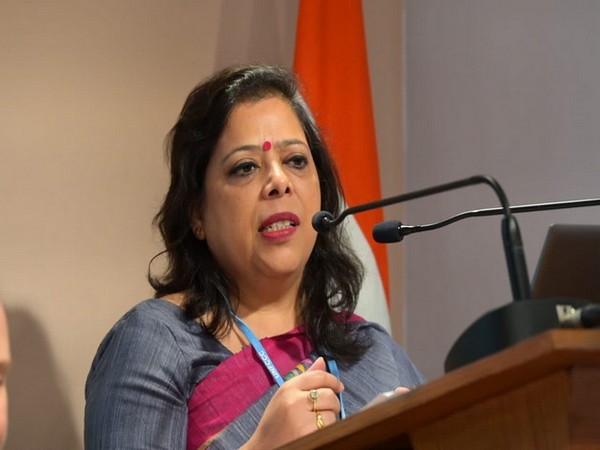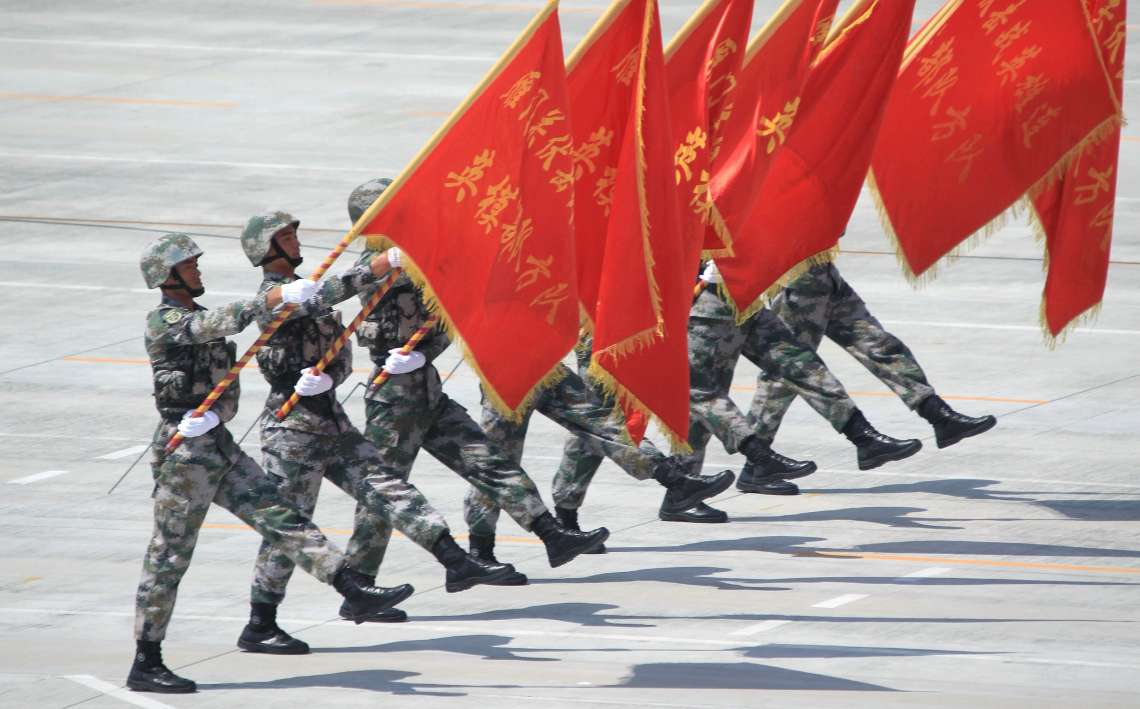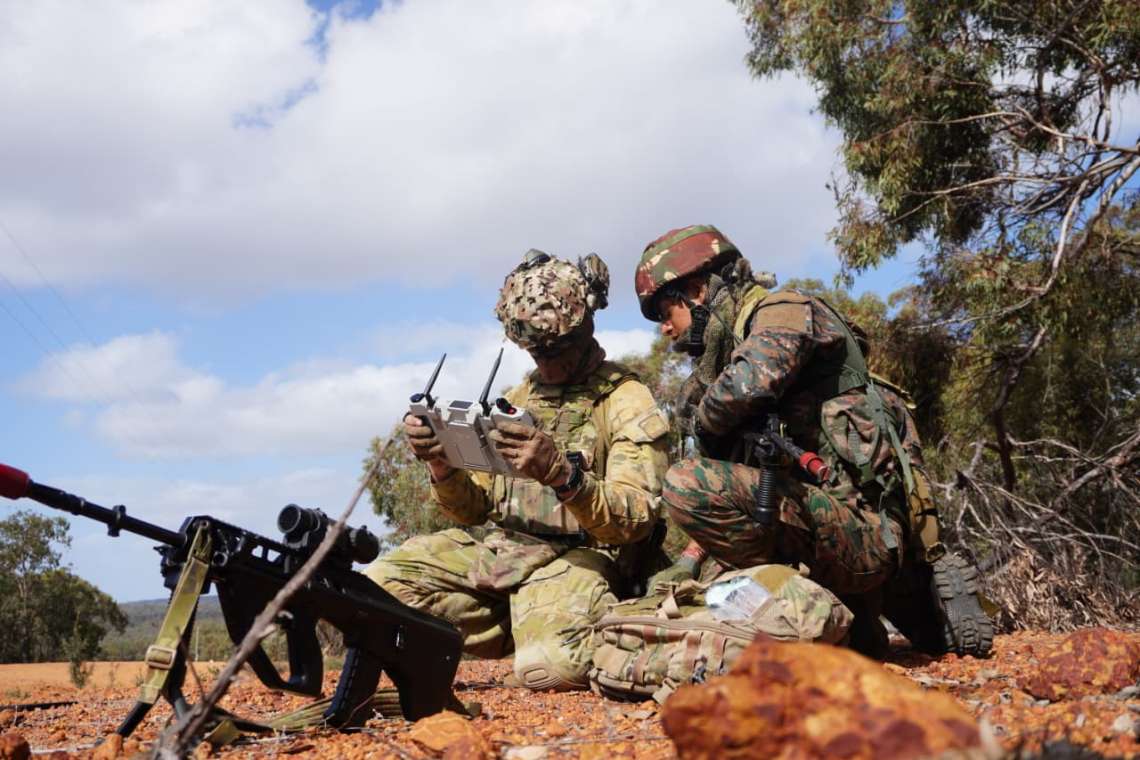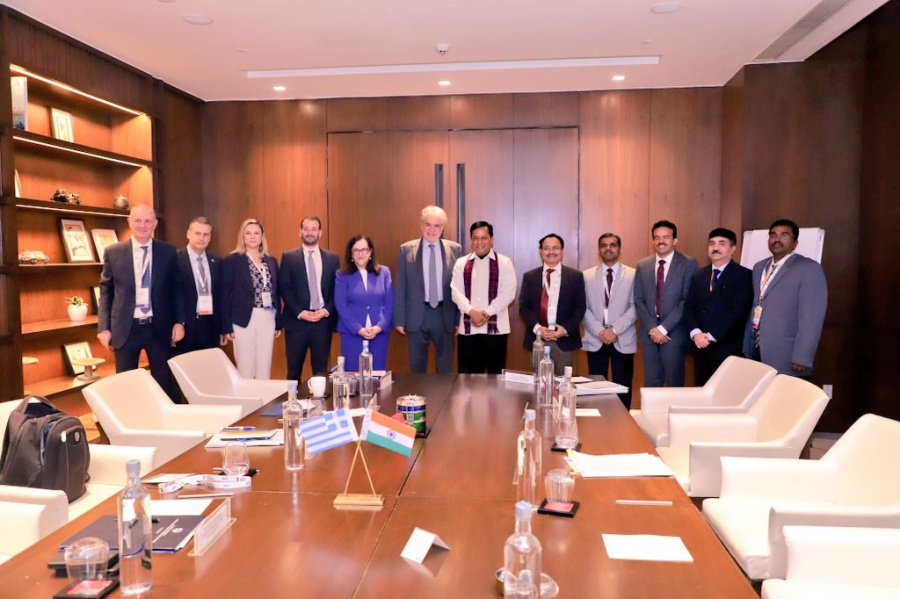Environment Secretary Leena Nandan said COP29 should come with tangible and meaningful outcomes on deployment of technology to the developing countries, reports Vishal Gulati…reports Asian Lite News
India on Monday sought access to enhanced financial resources, technology transfer and technical cooperation, and capacity-building support, besides the availability of market-based mechanisms.
Speaking at the high-level ministerial roundtable on pre-2030 ambition at the 29th session of the climate change conference of parties (COP29) being held from November 11-22 in Azerbaijan’s capital Baku, Leena Nandan, Secretary with India’s Ministry of Environment, Forestry and Climate, said, “We are in this crucial COP on finance.”
“It is an opportunity for the developed countries to ensure the success of this COP and foster trust to realise important milestones in climate ambitions by 2030.”
Achieving net zero by the developed countries would set the foundation for a more sustainable and resilient world in this critical decade and the decades to come, she said.
“It also requires a focus on equity, common but differentiated responsibilities and respective capabilities, climate justice in science, policy and practice, ensuring that developing nations are not burdened with the failures of mitigation actions of the pre-2020 regime and that climate solutions are both effective and just.”
The deputy leader of the Indian delegation highlighted four important aspects of global climate action, which Parties (nations) must address: First, there is a need for scaling up innovative actions through barrier and restrictions-free technology transfer.
“New technologies and solutions are needed to drive the transition to a low-carbon economy. However, innovation in areas like clean energy, carbon removal, etc., is still in the early stages and there are barriers to scaling and transfer to developing nations.
“India is calling attention to the importance of knowledge and technology transfer without Intellectual Property Rights (IPR) restrictions for green technologies, and we are emphasising the need for overcoming IPR barriers.
“COP29 should come with tangible and meaningful outcomes on deployment of technology to the developing countries. We are particularly keen that the technology implementation program should be able to address the significant gaps in technology deployment by enabling access to affordable, adaptable, and locally relevant technologies.”
She said that climate finance is central to enabling and implementing climate actions. The first global stocktake of progress towards implementation of the Paris Agreement has highlighted that there is a significant gap in financing for climate action, particularly in developing countries.
She said promoting the deployment of clean energy, disaster-resilient infrastructure, and adaptation projects requires trillions of dollars.
“Climate finance should ensure that the deviation from their least-cost development pathways committed by the developing countries is fully met through the public climate finance from the developed countries. Not doing so, puts additional cost on the people in developing countries, who have been, otherwise, subjected disproportionately to the impacts of climate change, without having caused the problem in the first place.”
Saying this summit is a milestone COP for climate finance, she said: “It should ensure the long-pending commitments from developed nations for providing substantial financial resources are made and that such climate finance is equitable and accessible.”
Third, she batted for enhancing International cooperation. The pre-2030 ambition requires the enhancement of international cooperation, in terms of positive and measurable results such as the identification of cost-effective and scalable mitigation opportunities.
However, international cooperation has been uneven, with some countries shifting to unilateral measures resulting in passing off financial burdens of mitigation actions onto developing nations.
“There is a need to recognise the negative impacts on developing nations due to such unilateral trade measures in the context of climate change.”
India said the 2024 Nationally Determined Contributions (NDCs) Synthesis Report does not pose a gloomy picture altogether.
“A total of 195 parties have submitted their NDCs with 180 having updated them. In 2030, total global GHG emissions are estimated to be around 2.6 per cent lower than in 2019, indicating the possibility of global emissions peaking before 2030. It will be safe to assume that all parties have come together to achieve this important milestone in the fight against climate change.”
“With the next NDC due next year, these figures can only improve further,” an optimist Nandan added.
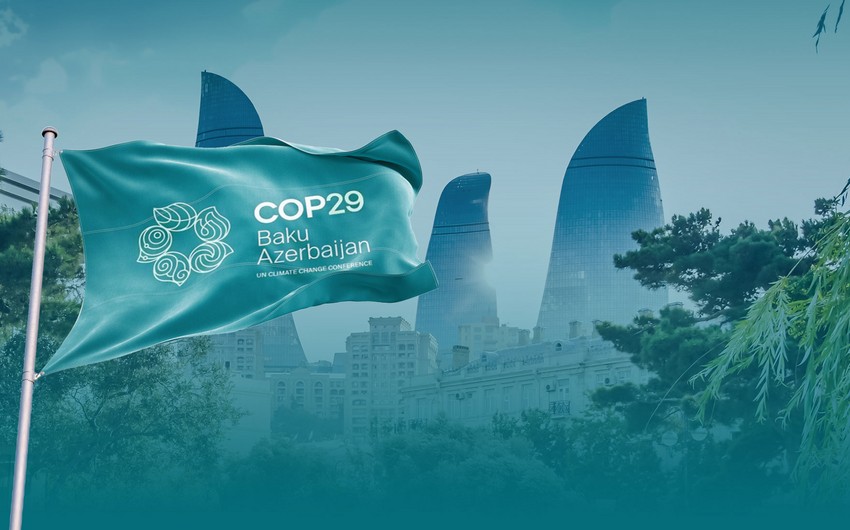
India highlights four key aspects of climate action
India made a significant intervention on Monday during the ‘2024 Annual High-level Ministerial Roundtable on pre-2030 Ambition’ at the COP29 UN Climate Change Summit in Baku, Azerbaijan, emphasising four critical aspects of global climate action.
India underscored the importance of addressing four key areas in global climate action: scaling up innovative actions and technology transfer, prioritising climate finance as central to implementing climate action, enhancing international cooperation, and fostering mutual trust among nations, according to a statement from the Ministry of Environment, Forest and Climate Change.
Leena Nandan, Secretary of the Environment, Forest and Climate Change Ministry and Deputy Leader of the Indian Delegation, highlighted findings from the 2024 Nationally Determined Contributions (NDCs) Synthesis Report. She noted that cumulative CO2 emissions between 2020 and 2030 are projected to consume 86% of the remaining carbon budget, as per the ministry’s statement.
“Our discussions and deliberations are taking place at a crucial time when decisive action is imperative. The pre-2030 period is an opportunity to enhance global climate action,” the statement read.
India emphasised that this ambitious, action-oriented approach depends on bold commitments from parties responsible for leading economy-wide emission reductions. Developed nations achieving net-zero targets would lay the groundwork for a sustainable and resilient world in the current and future decades.
The statement also stressed the importance of equity and the principle of common but differentiated responsibilities and respective capabilities (CBDR-RC), along with climate justice in science, policy, and practice. It highlighted the need to avoid burdening developing nations with the consequences of inadequate pre-2020 mitigation efforts and called for climate solutions that are both effective and equitable.
India further called for the scaling up of innovative actions through unrestricted technology transfer. “New technologies and solutions are critical for transitioning to a low-carbon economy, yet innovations in areas such as clean energy and carbon removal remain in their early stages, with significant barriers to scaling and transferring them to developing nations,” the statement said.
The ministry also emphasised the importance of knowledge and technology transfer without Intellectual Property Rights (IPR) restrictions on green technologies, urging COP29 to deliver tangible outcomes on deploying technology in developing countries.
On climate finance, the statement highlighted a significant gap in funding for climate action, particularly in developing nations. “The first global stocktake of progress under the Paris Agreement shows a substantial shortfall in financing, which is essential for deploying clean energy, building disaster-resilient infrastructure, and implementing adaptation projects, requiring trillions of dollars,” it stated.
India stressed that public climate finance from developed nations must fully cover the costs of deviations from least-cost development pathways for developing countries. “Failure to do so imposes additional burdens on people in developing nations, who already bear disproportionate impacts of climate change despite minimal contributions to the problem,” the statement added.
India termed COP29 a “milestone” for climate finance, urging developed nations to fulfil long-standing commitments to provide substantial, equitable, and accessible financial resources.
On international cooperation, the statement noted that enhanced collaboration is essential for achieving measurable outcomes, including cost-effective and scalable mitigation solutions. However, it criticised the uneven nature of international cooperation, with some nations resorting to unilateral measures that transfer financial burdens to developing countries.
“There is a need to address the negative impacts of such unilateral trade measures on developing nations in the context of climate change,” the statement said.
Highlighting mutual trust as a cornerstone in combating climate change, India asserted that COP29 offers developed nations a chance to build trust and achieve significant milestones in climate ambitions by 2030.
The ministry noted that while the 2024 NDC Synthesis Report raises concerns, it also provides hope. “195 parties have submitted their NDCs, with 180 updating them. Global greenhouse gas emissions in 2030 are estimated to be 2.6% lower than in 2019, suggesting a possible peak before 2030. With the next round of NDCs due next year, there is room for further improvement,” India said at COP29. (ANI)
ALSO READ: India-US ties to strengthen under Trump, says Garcetti


